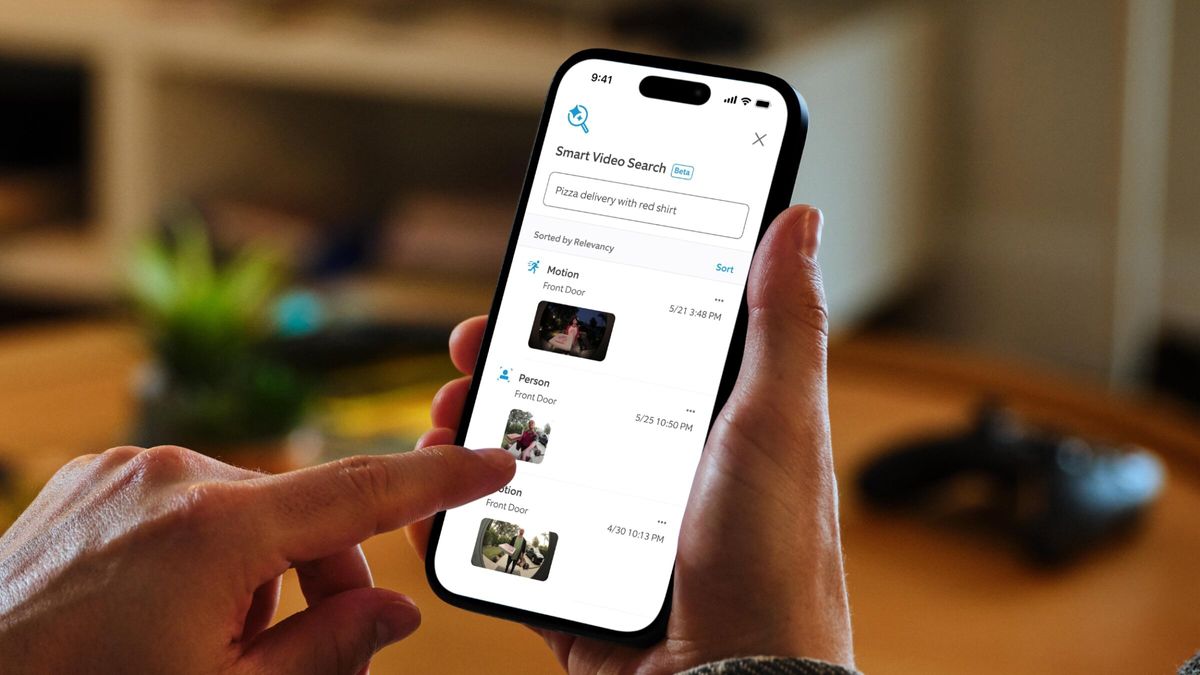Home security cameras are no longer content to sit in the background and watch for burglars – they want to be your family video cameras, and Ring has just announced a Smart Video Search feature to track down special moments in your Ring video history.
Naturally, the feature is AI-powered and only available to those with a Ring subscription (specifically those on the priciest Ring Home Premium tier, which costs $19.99 / £15.99 a month), because otherwise recorded clips aren’t available. But if that includes you, it certainly looks like a helpful addition to the security cams – if you’re happy with the camera nosing into your home life.
Smart Video Search is apparently powered by Visual Language Modeling (VLM), which can quickly match text queries to images. If you tend to scroll through your footage a lot, the benefit is potentially saved time – and maybe some helpful reminders about where you left your keys or the cat might be hiding.
Ring’s example use cases show that the feature is clearly aimed at those who use the best home security cameras as a broader family camera rather than a burglar deterrent. It suggests you could use it to “figure out who ate the last of the ice cream” or to work out “why the garbage cans are knocked over.”
If those sound a little niche, Ring also suggests searches like “red bicycle in the driveway” to track down the moment your kid first learned to ride a bike. Again, the real benefit is going to be for those who are happy to sacrifice privacy for searchable memories.
The Smart Video Search function is rolling out now in public beta to “select customers” and works with all Ring video doorbells and cameras. A wider rollout will occur from November 5 when Ring says it’s launching a “revamped subscription service” called Ring Home. That new service will bring features including Smart Video Search and 24/7 recording to Ring Home Premium subscribers, initially only in the US.
Nudging ahead of Nest
While Google beat Ring to announcing AI-powered video search for its Nest home security cameras back in August, Ring has become the first to roll out the feature – if only to a select few beta customers.
Google previously said it would preview a similar feature for Nest later this year ahead of a full release in 2025, so the two rivals are on a roughly similar timeline. Yet the popularity of the feature might depend on how many see value in a searchable family video history.
AI-powered search is being pushed as a powerful replacement for our ailing memories across everything from Google Photos (with its new ‘Ask Photos’ feature) to Apple Intelligence (like its Memory Movies feature).
That puts these features in a controversial, sensitive spot that could leave many weighing up the potential benefits with the undoubted privacy invasion. Clearly, the tech giants see AI-powered search inside our personal photos and videos as a subscription cash cow, but we’ll find out how popular they are when the likes of Ring’s Smart Video Search and Google’s Nest equivalent get proper rollouts later this year.

